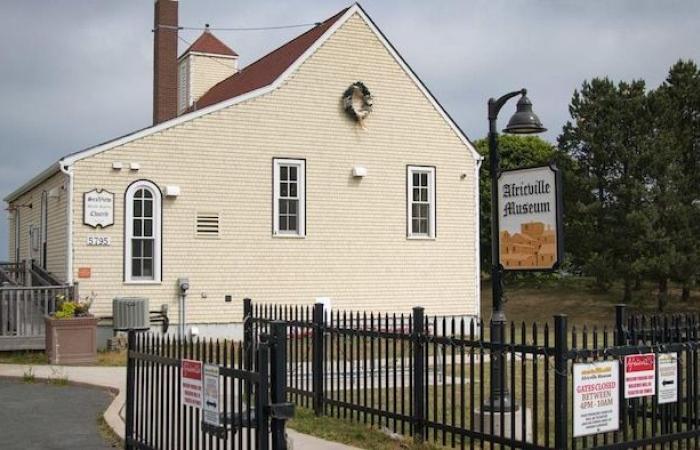The historic African Nova Scotian neighborhood of Africville in Halifax receives UNESCO designation as a site of history and memory linked to slavery and the slave trade. This is the first designation of its kind in Canada.
This new designation was established as part of the Routes of Enslaved People program of theUNESCOwhich marks its 30th in 2024e birthday.
This program co-produces knowledge, establishes scientific networks and supports commemorative initiatives on the theme of slavery, its abolition and the resistance it generated.
The story of Africville demonstrates how the legacy of the transatlantic slave trade endures and paved the way for the racism experienced by Africville’s black population
says Yves-Gérard Méhou-Loko, secretary general of the Canadian Commission forUNESCOin a press release. It is important that all Canadians know its history.
Open in full screen mode
The Africville Museum is located where the community was located, in a building that is a replica of the church its residents attended.
Photo : Radio-Canada / CBC/Robert Short
Despite the taxes Africville residents paid, the community never had paved roads, running water or sewers. In the 1960s, residents were forcibly relocated to make way for the A. Murray MacKay Bridge on Halifax Harbour.
It is now the Africville Heritage Trust, a non-profit organization run by volunteers, which preserves the memory and cultural heritage of Africville in its museum housed in a replica of the Seaview United Baptist Church, destroyed during the razing of the community.
I hope the UNESCO designation will be a catalyst of support for Africville Heritage Trust and the organization’s efforts to shed light on this important history.
The documented presence of people of African descent in Nova Scotia dates back to the 17e century. Their numbers increased significantly after the American Revolution of 1776. Africville was established by a subsequent wave of migration that followed the Anglo-American War of 1812.
During this period, it is estimated that approximately 2,000 members of the African diaspora, many of them former slaves, arrived in the Maritimes.
In a span of less than 120 years, the owners of the land and homes of Africville have gone from self-sufficiency to tutelage exercised by a paternalistic city which deprived them of their rights and their dignity
underlines Percy Paris, president of the Africville Heritage Trust, in a press release. And yet, the intangible cultural heritage that is at the heart of Africville has not been destroyed.
What is UNESCO?
The United Nations Educational, Scientific and Cultural Organization has the mandate to contribute to the maintenance of peace and security in the world, by promoting international cooperation, knowledge sharing and free flow of ideas. The Paris-based organization began life in 1945 following World War II.
More details to come.






